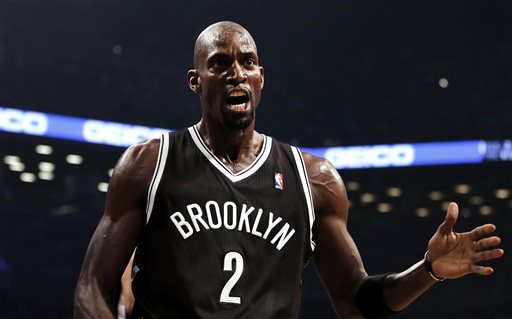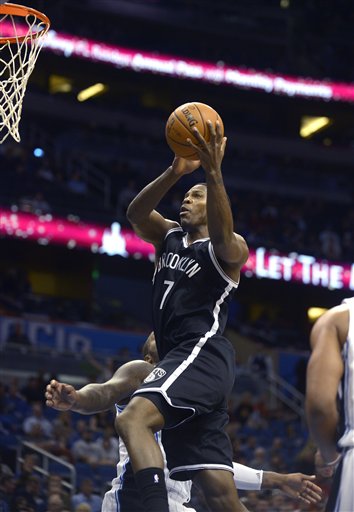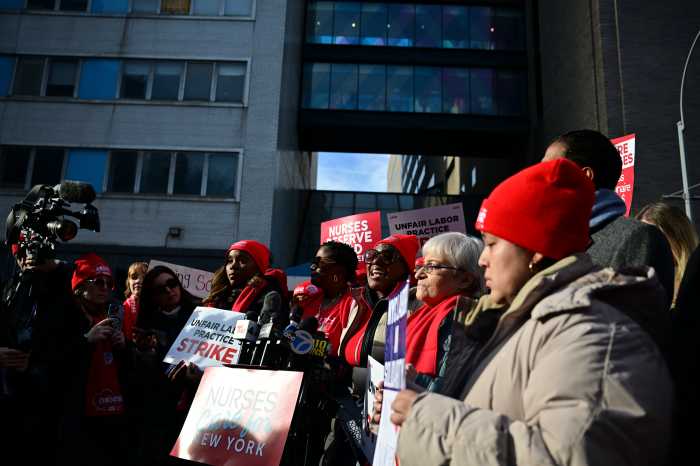Today and tomorrow, we’re going to look at six things we’ve seen from the Brooklyn Nets in the first six games. Here’s part one.
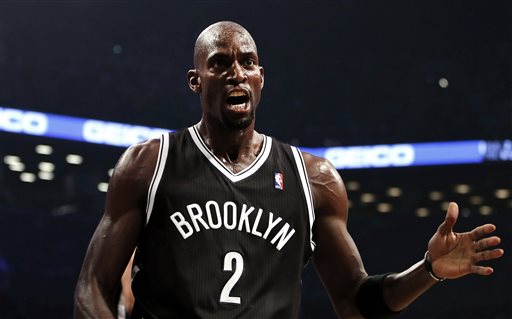
One of the most frustrating in-hindsight realizations following Brooklyn’s dispatch from the playoffs last season was the team’s expectation that it could “get by” with paltry production at the power forward position from Reggie Evans, Kris Humphries, and dashes of Mirza Teletovic here and there. It was an expectation that Tom Thibodeau and a stout Chicago defense swiftly and mercilessly eradicated.
Where Evans’ elite rebounding served as a massive boon to the team in the regular season, his inability to make a shot, any shot, allowed Thibodeau in the playoffs to essentially leave him unguarded and relegate his man, typically Carlos Boozer or Taj Gibson, to serve as a strong-side zone defender. Where Kris Humphries was Kris Humphries in the regular season, he was Kris Humphries in the playoffs.
Moving forward, the trade with the Boston Celtics in July which yielded Kevin Garnett, among others, appeared to be a major game-changer for Brooklyn. Many reasonably envisioned Garnett as the Michelangelo to the Nets’ defensive renaissance, as well as a player who couldn’t be simply ignored on the offensive end.
It hasn’t happened quite that way so far. The Nets are 2-4, and Garnett is playing the worst basketball of his career in these first few weeks. Most everyone watching this team is thirsty for a regression to the mean that hasn’t happened yet. Let’s start off with the bad and then move on to the bad. Here is Garnett’s shot chart for the season to date:
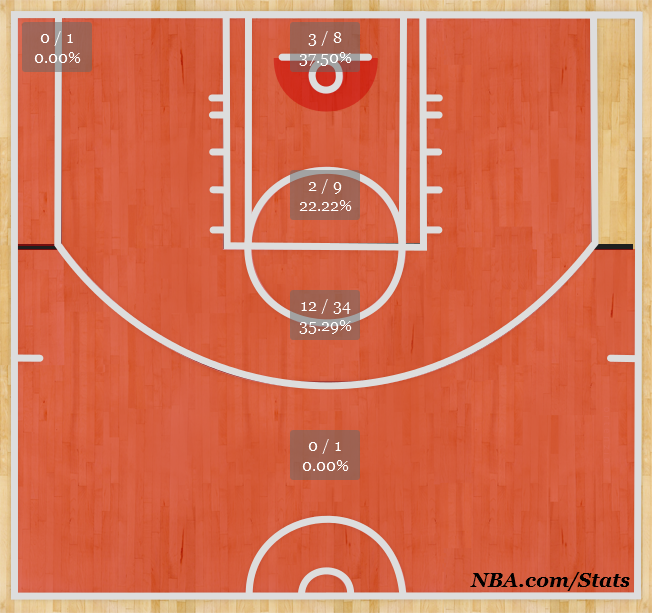
I was initially alarmed at the low percentage of shots that he has taken in the paint, but his numbers from last year in that area actually aren’t that far off: he really does take that few shots close to the basket. You might say, “It’s not like Reggie was any better last year!” And you’d be right, except you’re not. Evans shot just shy of 50 percent on his at-rim attempts last season. Meanwhile, Reggie’s usage was around 11 percent in 12-13. Garnett’s is north of 21 percent this season. So he’s shooting worse, and he’s doing it about twice as often!
Here’s the kicker: of players who have played in 2+ games and averaged 20+ minutes in those games, Garnett’s 33.1 true-shooting percentage is the worst in the NBA. If Synergy’s play-charting methods are more your style, he’s scoring at a rate of .562 PPP, good for the eighth percentile league-wide. Not only have the Nets not improved their offensive output from the starting power forward position this year, it’s also become pretty much the worst.
The Nets are 6.3 points per 100 possessions better on offense (101.6 vs. 95.3) when Garnett is on the pine. That’s not exactly the kind of championship fine-tuning Brooklyn had planned when they made the trade this summer.
On the bright side, there’s just no way he can possibly continue at this alarmingly bad clip. Garnett was a 46.6 percent midrange shooter from 2010-2013, so there is an uptick coming. There must be. It’s a matter of when, not if. I hope.
Given the morbid nature of Garnett’s numbers to date this season above, I’d just love to take the opportunity now to illustrate the positive, uplifting impact that his presence has made on defense. But I can’t. So here’s a meme.
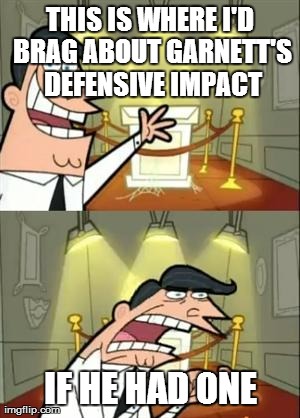
Yes, Garnett — champion of rotations, lord of barking, duke of hedging pick-and-rolls — has been nothing more than a jester on the defensive end of the floor. Garnett has been noted extensively for his legendary influence on Boston’s defense over the last six years, conducting a symphony of despair and rejection for anyone unfortunate to visit TD Garden Theatre. Maybe there hasn’t been enough time for the Nets to adjust to new defensive schemes, maybe he has finally gotten too old, or maybe he’s newly suffering from a rampant body odor problem. Bottom line: it hasn’t worked early with Garnett on the floor.
According to NBA.com, Brooklyn has allowed 107.6 points per 100 possessions with Garnett on the court. If you extrapolated that rating to the whole team, they’d be tied with the Sacramento Kings for the worst defense in the NBA. With Garnett on the bench, the team’s defensive rating plummets to 96.6 points per 100 possessions. Extrapolate that and the Nets are tied with the Minnesota Timberwolves for the sixth-best defense in the NBA.
Sure, on-off stats are not foolproof. And you’d be wise to consider the possibility that the starting lineup, with which Garnett plays a large chunk of his minutes, is responsible as a whole for the sluggish defense, that it’s not just Garnett. Well, the numbers don’t back that up either. Sub Andray Blatche in for Garnett, and suddenly the Nets become, like, the best team ever. The 5-man unit of Deron Williams-Joe Johnson-Paul Pierce-Blatche-Brook Lopez notches 114.6 points per 100 possessions and surrenders only 88.6, good for a net rating of +26 points per 100 possessions! The original starting lineup? -2.3 points per 100. That best-team-ever lineup is the Nets’ second-most-played unit at 31 minutes compared to the starters’ 65. And the Nets are 2-4.
It’s rough to say, but Garnett has been profoundly rough himself in this early season.
It’s not quite obvious at first glance just why Garnett has been so bad, only that he has been. All I noticed in particular upon a cursory glance at video was that he was notably slow keeping up with guards coming off of pick-and-rolls, out of which he has surrendered a below-average (slightly worse than average) .8 PPP. Garnett is known for his tendency to hedge hard on pick-and-rolls, and maybe it’s this year that he becomes a step too slow to maintain that strategy.
Obviously it’s not just that detail, but it’s something to learn from. Regardless, I think it will take a larger sample size to diagnose the long-term problem, assuming he doesn’t snap out of his defensive funk sometime soon.
It’s a long season, and the Nets have shown they’re much more committed to the long game than any short-sighted team goals. It’s likely that the Nets will end up safely in the playoffs even if Garnett doesn’t round into top form, but it will be a problem nevertheless.
Garnett was supposed to turn around poor production at the power-forward position for the Nets, and all he has done is exacerbated the problem. As he’d be the first to say himself, anything is possible.

